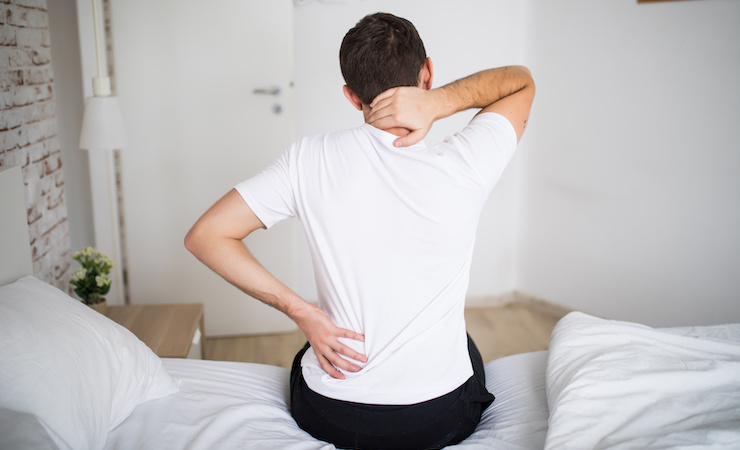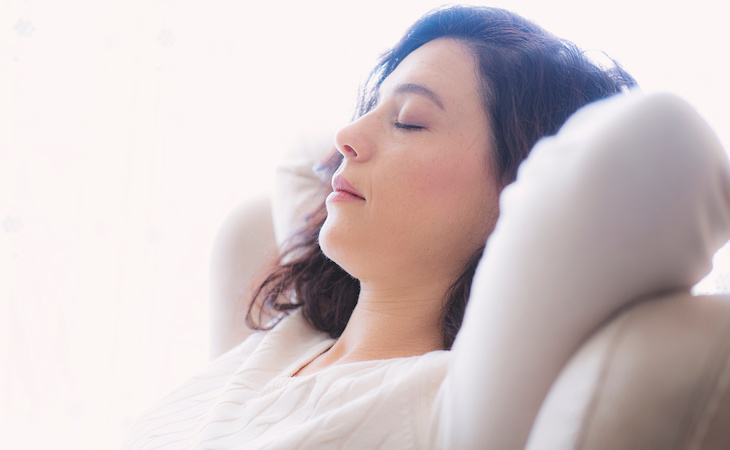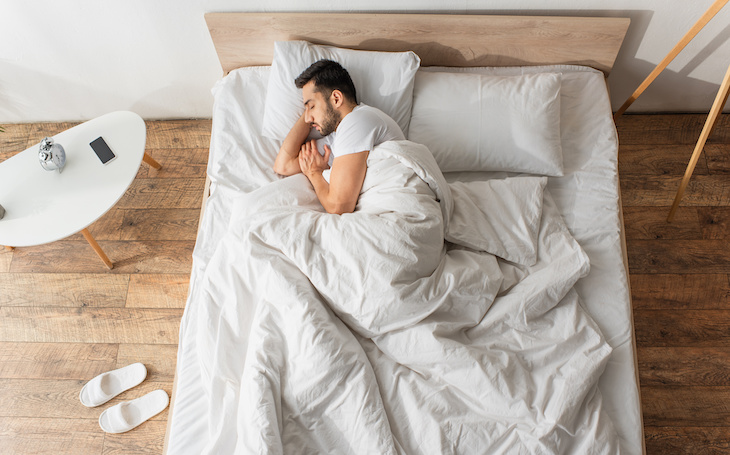Many people require physical therapy at certain points in their lives, whether they’ve recently had surgery or they’d like to alleviate pain associated with an injury.
But one beneficial byproduct of physical therapy you may not have considered is improving your sleep. And in turn, quality sleep can make your physical therapy even more effective.
Ahead, we’ll explore in more detail the link between physical therapy and sleep.
Sleep and physical therapy: What’s the connection?
“Sleep possesses a power that is often underestimated,” says Nicki Evans, doctor of physical therapy and owner of Stride Physical Therapy and Wellness. “It plays a crucial role in healing, restoring function, and facilitating nutrition recovery.”
Evans explains that physical therapy also contributes to the healing process. “When a client enjoys a restful night’s sleep, they are better equipped to carry out the tasks assigned by a physical therapist,” she says. “Their movements are more coordinated, they are more engaged, and their outlook overall tends to be more positive.”
Evans adds that furthermore, sleep aids in pain management since lower levels of pain increase a person’s willingness to engage in the prescribed exercises and movement patterns recommended by their physical therapist. This pain management can also boost sleep quality.
“Physical therapists can provide guidance on optimal sleeping positions, which can further enhance the quality of sleep,” Evans notes. “Additionally, physical therapy can improve joint mobility, eliminating limitations in lying flat and ultimately improving sleep quality.”
Medical studies have explored the connection between pain and sleep and the impact physical therapy can have on sleep. For instance, according to one 2017 study, it was proven that without adequate sleep, people could feel pain more deeply and were at an increased risk for injuries and falls.
A 2021 study, meanwhile, found that physical therapy could be an effective tool when managing sleep disorders.
Physical therapy for sleep apnea
Sleep apnea is a sleep disorder that has three main variations, with the most common being obstruction of the airway. It’s possible that physical therapy may be beneficial for those with sleep apnea.
“As a physical therapist, we understand that while we cannot directly change the size of the airway, our services can still be beneficial to clients with sleep apnea,” Evans says. “Indirect measures can be taken to ensure that the airway is as spacious as possible.”
These measures include weight loss, particularly for individuals with high body weights, as well as optimal head positioning.
While there are no specific physical therapy exercises for sleep apnea, there are exercises that can indirectly benefit those with sleep apnea, through improving posture and aiding in weight loss.
“For improving posture, some exercises that can be included are rows and chin tucks, among others,” Evans says. “These exercises focus on strengthening the muscles responsible for maintaining a correct posture, which can ultimately alleviate the symptoms of sleep apnea.”
As for weight loss, Evans says there are many exercise options available. “Endurance activities such as walking or biking can be effective in burning calories and shedding excess weight,” she notes.
Evans also cautions that it’s crucial to consult with a professional while designing an exercise program tailored to your needs and capabilities to ensure optimal results and minimize the risk of injury.
How to prioritize sleep while doing physical therapy
One important recommendation Evans has for prioritizing sleep is to establish a consistent bedtime.
“When we maintain a regular sleep schedule, our bodies are able to adjust and optimize the healing process during sleep,” she says.
Additionally, Evans encourages her clients to find a pillow or a soft object, such as a donut ring or a travel/neck pillow, that provides them with the utmost comfort throughout the night.
“For individuals who sleep on their side, it can be beneficial to use a pillow between their knees,” she says. “This helps to support the legs, reducing strain on the hips and back. As a result, they may experience less pain and stiffness when they wake up in the morning.”
FAQs
How does sleep affect physical therapy?
Since sleep helps the body heal and aids in decreasing pain, it can ultimately help someone have even more successful physical therapy sessions.
Why is sleep important for physical therapy?
Sleep aids in pain management as lower levels of pain increase a person’s willingness to engage in the prescribed exercises and movement patterns recommended by their physical therapist, says Evans.
Can PT help insomnia?
“Depending on the manifestation of insomnia, I believe that physical therapy can provide benefits, albeit indirectly rather than directly,” Evans says. “PT practitioners can offer educational support and strive to identify the underlying causes of insomnia in individuals.”
By focusing on breathing training techniques, PT professionals can assist in calming the body, potentially aiding in relaxation and promoting better sleep, adds Evans. “PTs also have the ability to prescribe tailored exercise programs, which can help reduce overall energy levels and contribute to improved sleep patterns,” she says.
What’s the relationship between sleep and physical health?
Evans believes there’s a strong correlation between sleep and physical health. “When individuals take proper care of their bodies, both physically and emotionally, they enable their bodies to relax and achieve a more restful night’s sleep,” she says. “Maintaining an active lifestyle enhances the body’s ability to recalibrate during sleep, resulting in increased energy, improved mental clarity, and a heightened sense of work ethic and engagement in various tasks.”
Furthermore, it’s important to recognize the significant impact sleep has on daily functioning, adds Evans. “A restful sleep enables individuals to concentrate better on their tasks, be fully present with family and friends, and ultimately leads to a healthier overall lifestyle,” she says.
The way you position yourself in bed can affect how well you’re able to sleep. Next, learn how to improve your sleep posture, according to a physical therapist.




